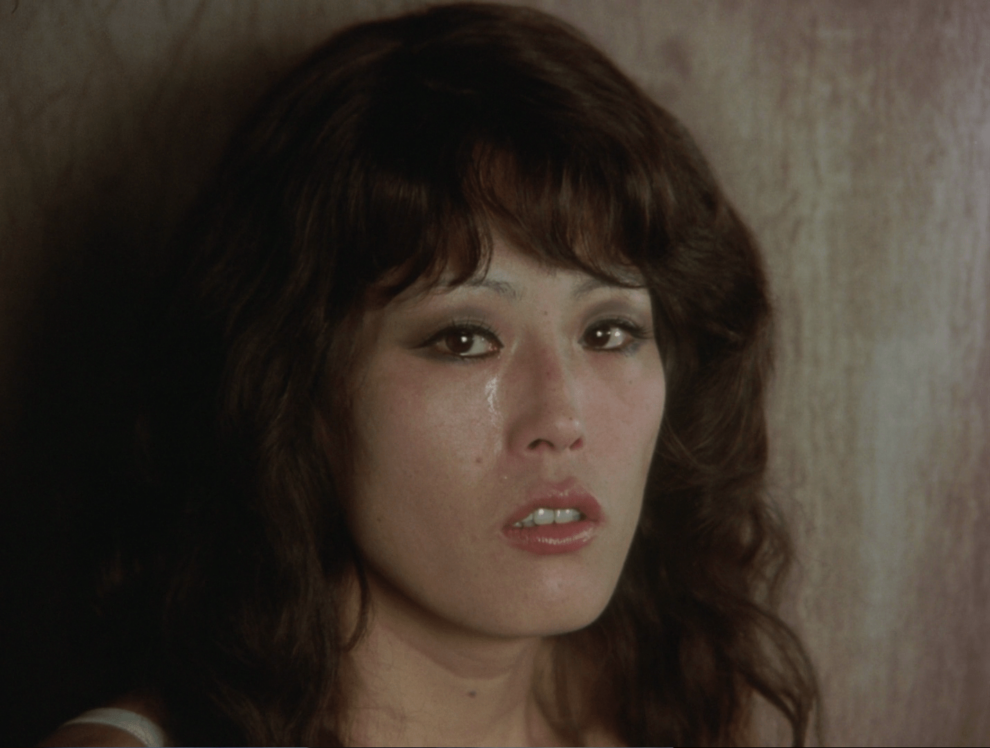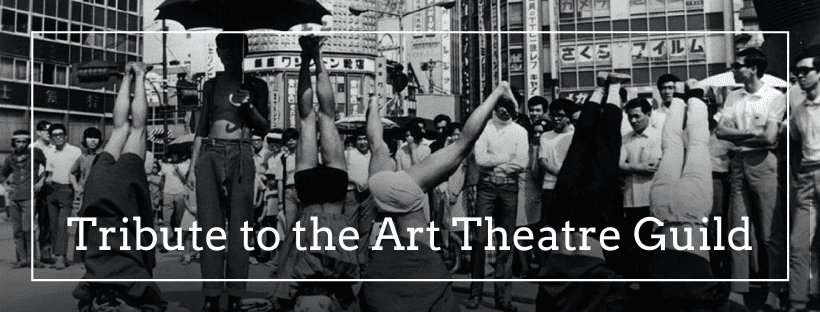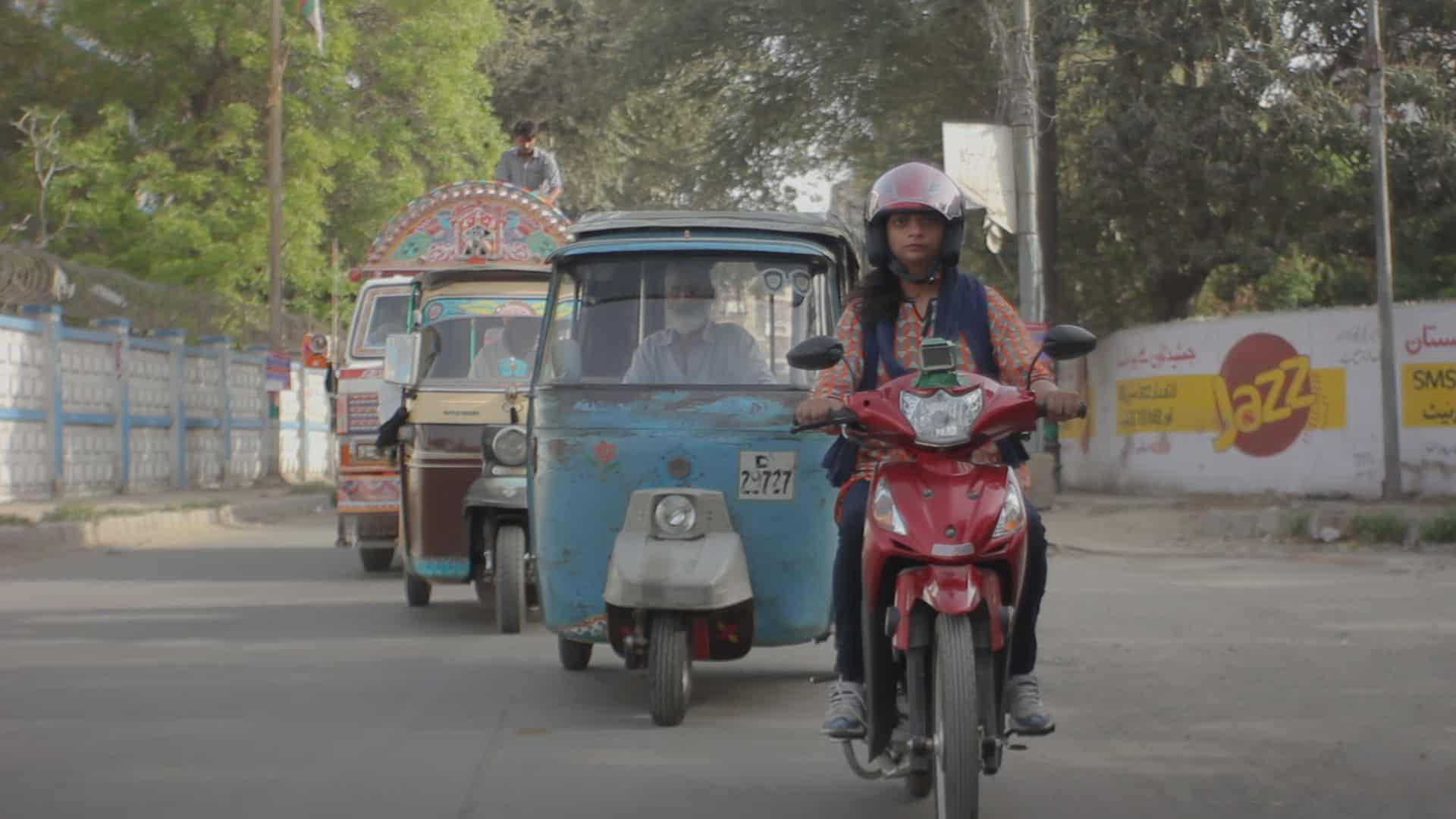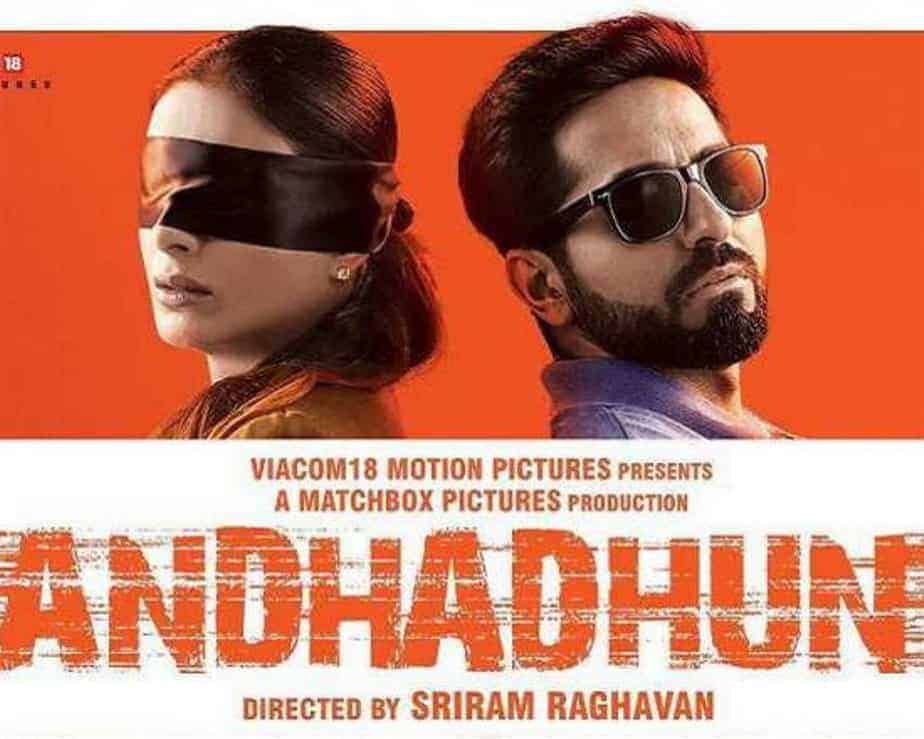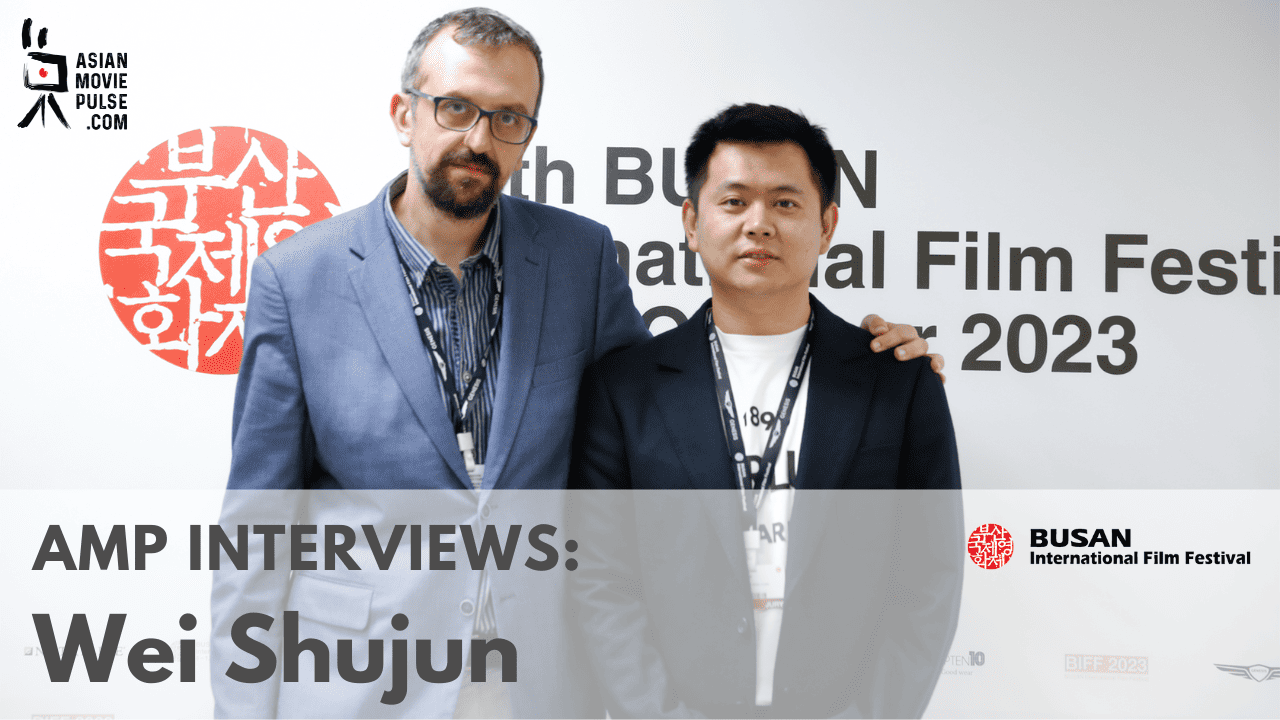Juro Kara is a Japanese avant-garde playwright, theatre director, author, actor, and songwriter. He was at the forefront of the Angura (“underground”) theatre movement in Japan, while as an actor, he cooperated with some of the biggest names of the Japanese movie industry, including Shohei Imamura, Masahiro Shinoda, Shuji Terayama, Toshio Matsumoto and Koji Wakamatsu. As a director, however, he only came up with one title, co-produced by ATG “Sea of Genkai”, an unusual type of yakuza film that focuses intently on the treatment of Korean women in the hands of the Japanese.
The movie begins with a young man causing a ruckus on a high traffic street, until an older man takes him under his wing. The young man is named Taguchi and seems to have no one in his life, which is why he almost immediately becomes a kind of son to Kondo, a morose yakuza who operates a small fishing boat he uses to transport Korean girls across the Genkai Sea for Sawaki, a man with whom he shares a common past and now operates as a kind of his boss. As it is soon revealed through flashbacks, the two were initially acquainted when they were medical students working on corpses from the war, before being offered a job by US soldiers that took them to the slums of Busan in 1951. There, they became the worst version of themselves they could be, getting filthy drunk, and using the dog tags they found on dead soldiers to meet their widows, which they stole from and even raped and killed them if they dared to resist.
When Kondo and Taguchi make another journey to bring in a fresh batch of Korean women to be given to the yakuza organization Sawaki works for, they end up with two unusual individuals. Kojun is a woman who reminds Kondo intently of his past sins and who also stands immediately out due to her knowledge of Japanese, while she soon also takes an interest in Taguchi. Mr Kim is a sort of caretaker for the women, but is soon revealed to have a completely different agenda. As the past of all the main characters presents even more hellish events, the yakuza syndicate is putting more pressure onto them.
Check also this interview
Despite the fact that the movie begins as a comedy (the “Hail McArthur” moment will definitely stay on mind) which mostly mocks the yakuza ways by presenting all of them and particularly Sawaki as caricatures, quite soon it turns into a drama filled with exploitation elements, before it concludes as a melodrama, retaining though, its grotesque premises. As such, the focus soon changes from the aforementioned mocking to highlight the torturing Koreans suffered in the hands of the Japanese, with the concept starting with stealing, raping and killing in 1951, and essentially continuing in the same fashion even during the 70s where the story seems to be taking place in.
Apart from this rather intriguing narrative approach, the characters that function as the apostles of these messages are also quite interesting themselves, particularly in the way they react to their “sins”. Kondo is filled with grief and wants to atone for his past misdeeds, which is probably why he takes Taguchi under his wing, but his past, and his own nature, actually, do not let him do so. Sawaki on the other hand is completely unremorseful and continues in the same and even worse way than his past, also wishing to drag Kondo down with him continuously, with their clashes being quite frequent. Considering the setting they both inhabit, though, their line of work, as much as their ties with the yakuza, seem almost a necessity, since they do not have any other way to survive. Kara does not present the fact as any kind of excuse, with the twists and revelation that appear throughout the movie essentially making things even worse. Noboru Ando as Kondo as Jo Shishido as Sawaki play off on another in the most brilliant fashion, with their antithetical chemistry being one of the best aspects of the movie, in two rather difficult roles that had them in actions that are quite appalling to watch.
Kojun seems to represent both the Zainichi Koreans and the troubles they faced (and still face actually) in a country that was never particularly welcome to foreigners, and the place of women in a rather patriarchal society. That despite her efforts and the glimpse of hope Taguchi offers, she ends up being beaten, raped, until she is eventually sent to perform in sex shows in rundown clubs, sends a rather pointed message about the lack of choice people with both her “capacities” faced. Reisen Ri,who was of Korean descent and also wife of Juro Kara, is exceptional in the role, as the main source of melodrama in the movie, in another rather difficult part. The scene where she is desperately roaming the streets is probably the most memorable in the whole movie.
Taguchi seems to symbolize the youths of the era, who tried to find their way in life without any kind of parenting and guidance, inevitably ending up making mistakes that lead them to another dead end. That he sees the man who is supposed to be his mentor raping the woman he loves is a distinct sample of this message. Jinpachi Nezu in the role is also quite good, essentially concluding the collection of damned anti-heroes that are the protagonists of the story.
Another great point here is the way the secrets and the twists unfold throughout the movie, mostly through well placed flashbacks, which are a testament to both Kara's direction and Michio Suwa's editing. The latter is actually a main source of the tension that permeates the movie, with the occasionally sudden cuts working quite well here, and also inducing the movie with a very fitting fast pace that suits its episodic style. Hiroshi Segawa's cinematography captures the hellish setting the protagonists inhabit in the most fitting fashion, emitting a constant sense of suffocation through his framing, while pulling no punches in the presentation of all the appalling actions the protagonists are involved in.
“Sea of Genkai” is definitely a very hard film to watch. However, and perhaps with the exception of the comedy of the first 20 minutes, the meticulousness Kara shot it with, the excellent acting, and the pointed comments result in a movie that can only be described as great.


